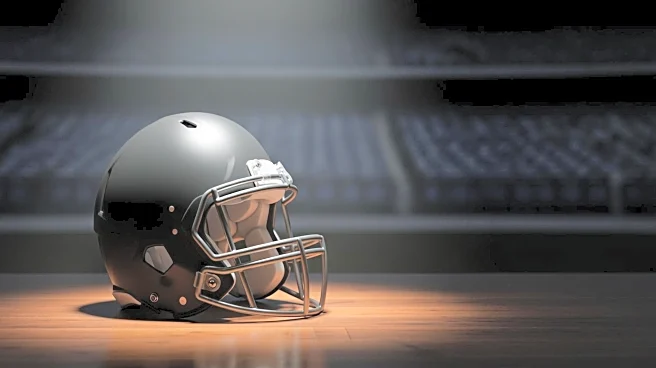What's Happening?
The NFL has requested all teams to observe a moment of silence for Dallas Cowboys rookie Marshawn Kneeland, who passed away recently. The league sent a memo to teams asking for this tribute, which will be accompanied by a message on jumbotrons encouraging
those in need of emotional support to contact the Suicide and Crisis Lifeline. Kneeland, who was in his second season with the Cowboys, died from a self-inflicted gunshot wound following a police chase in Texas. His death occurred shortly after he recorded his first NFL touchdown. Kneeland's agent, Jonathan Perzley, expressed deep sorrow over the loss, highlighting Kneeland's spirit and dedication to his career.
Why It's Important?
The tragic death of Marshawn Kneeland underscores the importance of mental health awareness and support within the sports community. The NFL's initiative to hold a moment of silence and promote the Suicide and Crisis Lifeline reflects a growing recognition of mental health issues among athletes. This event may prompt further discussions and actions to support players' mental well-being, potentially leading to enhanced resources and support systems within the league. The incident also highlights the pressures faced by professional athletes and the need for comprehensive mental health care.
What's Next?
The NFL's decision to honor Kneeland with a moment of silence may lead to increased awareness and dialogue about mental health in sports. Teams and organizations might consider implementing more robust mental health programs and support networks for athletes. Additionally, the league's actions could inspire other sports organizations to prioritize mental health initiatives. The tragic circumstances surrounding Kneeland's death may also prompt reviews of existing support systems and policies to better address the mental health needs of players.
Beyond the Headlines
Kneeland's death raises broader questions about the mental health challenges faced by athletes and the stigma surrounding these issues. The NFL's response could signal a shift towards more open discussions about mental health, encouraging athletes to seek help without fear of judgment. This event may also influence public perceptions of mental health, fostering greater empathy and understanding for those struggling with similar issues.
















